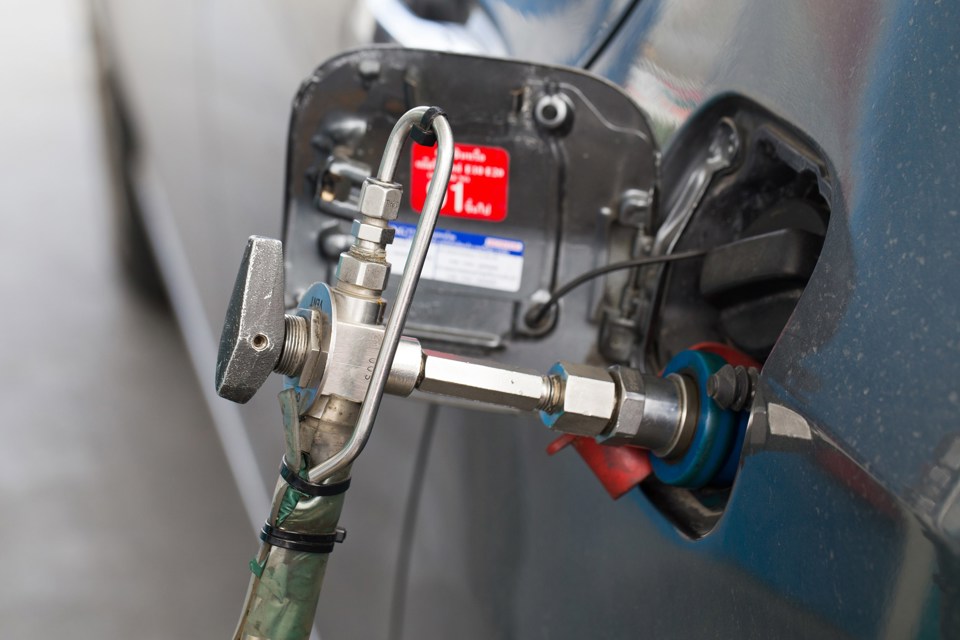Leeds City Council is looking to convert its fleet of 200 vans to run on compressed natural gas (CNG) following funding approval to build and run one of the UK’s biggest filling stations for the alternative fuel.
A spokesman for the council told Commercial Fleet a conversion for its fleet would have to be considered if the council wants to move away from its “reliance on diesel”.
The van fleet is currently made up of Ford Transits, Fiesta vans and Peugeot Partners. The council also has a fleet of 21 Ford Galaxys and Peugeot Expert Tepees, as well as 29 “various” cars.
The spokesman said cars were not under consideration for conversion currently, but if CNG gains in popularity as a fuel, the council would consider it.
A conversion of 70 refuse collection trucks will be the first to be completed before the council looks at converting its van fleet.
Running the refuse fleet on CNG is expected to save Leeds £1.5 million in diesel and AdBlue costs over a five-year period. It will cost approximately £24,000 to convert each truck. The council was unable to share its projections on fuel savings or how much it would cost to convert its van fleet.
The total cost for the project, including building the filling station, is expected to reach £5m, with funding provided in the form of a loan from Northern Gas Networks. The council will then enter into arrangements with a private sector operator to deliver payback of the loan based on a percentage of the profits from the fuelling station.
The station is expected to be operational by summer 2017 and can also be used to store and fill hydrogen, should that fuel prove popular in the future. The station will be accessible to both public and private sector customers.
Councillor Mark Dobson, executive member for environmental protection and community safety, said: “There is appetite for businesses to switch their fleet to greener fuels but, without the infrastructure, we’re not going to see the scale of change that will bring about a significant improvement to our environment and air quality.”
Dobson said investing in a CNG fuel station would change the current “chicken and egg” situation where businesses are worried about converting their vehicles with no easily accessible method to refuel.
The council said CNG would reduce its CO2 emissions by around 25%, cuts particulate matter by almost 100% and reduce NOx by 90%. There are currently 16 CNG fuelling stations spread out across the UK, but Leeds City Council argues there are no locations big enough to accommodate large scale conversions of fleets.
Leeds and the West Yorkshire Urban Area were included as a problem area in the Department for Environmental, Food and Rural Affairs’ (DEFRA) recent NO2 projections. The area is expected to exceed the European Commission’s limit of 40 micrograms of NO2 per cubic metre with an estimated output of 73 micrograms this year.
Independent sustainability organisation The Carbon Trust welcomed the move by Leeds to reduce emissions but doesn’t think CNG is the right choice as an alternative fuel.
Alex Hart, senior manager at the Carbon Trust, told Fleet News: “It is great to see anyone investing in bold measures to reduce CO2. But if we are to hit targets we will need transport technologies that are near zero CO2. Advanced biofuels, electric and hydrogen vehicles are a better alternative.”
DEFRA is working on drastically cutting UK transport emissions after being ordered to by the Supreme Court. Fleets will find out what measures will affect them by 31 December.
What is compressed natural gas?
Compressed natural gas (CNG) is made from the same natural gas that is used in homes for heating and cooking. By compressing the gas, it can be used to fuel vehicles that have been converted to run on it. CNG reduces CO2 emissions by up an average 25% compared to petrol-powered engines, it reduces NOx emissions by up to 95% versus diesel engines and reduces sulphur emissions by 50% compared to diesel.
Fleets can expect a 60% saving on CNG fuel compared to current diesel prices for the same distance travelled.
















Login to comment
Comments
No comments have been made yet.